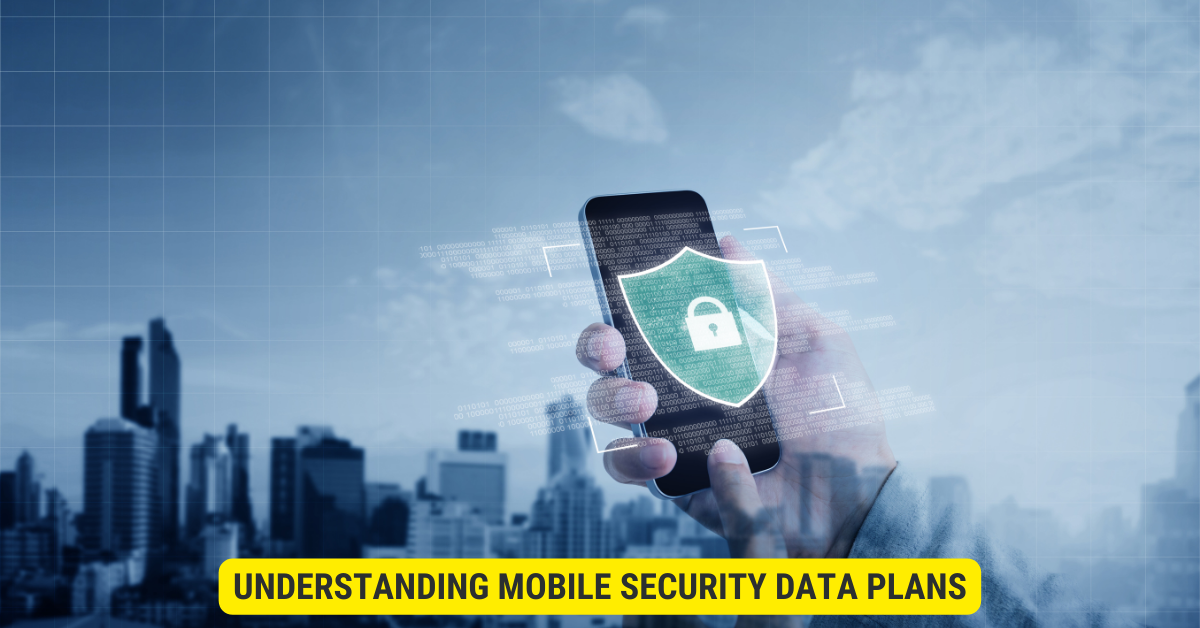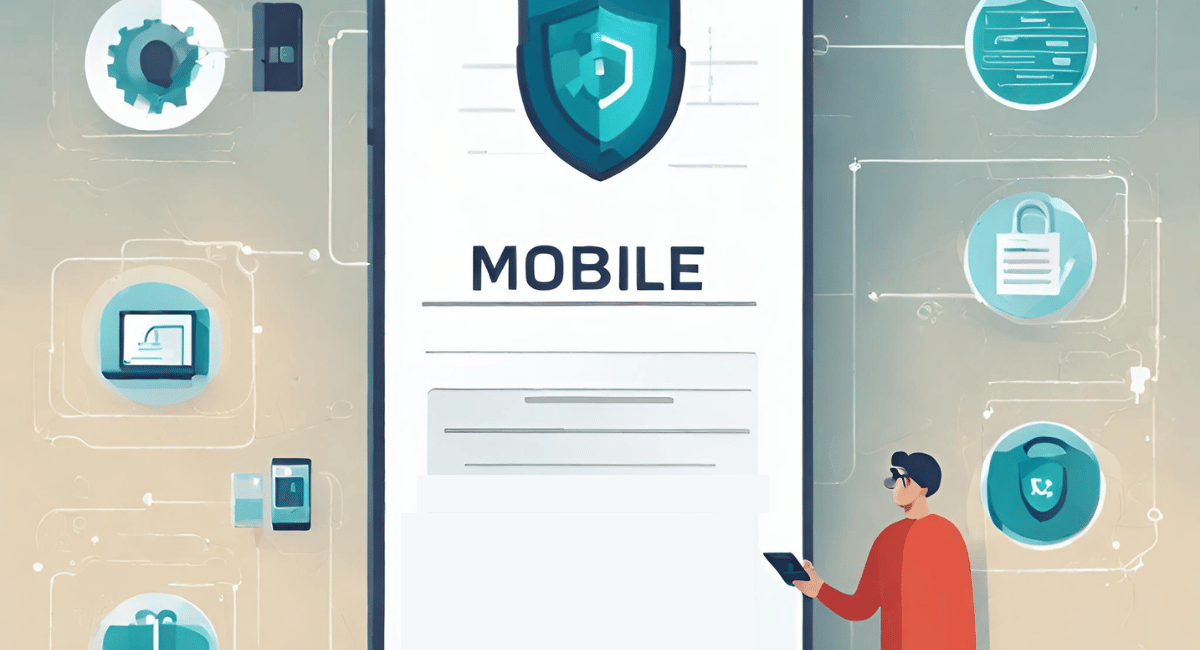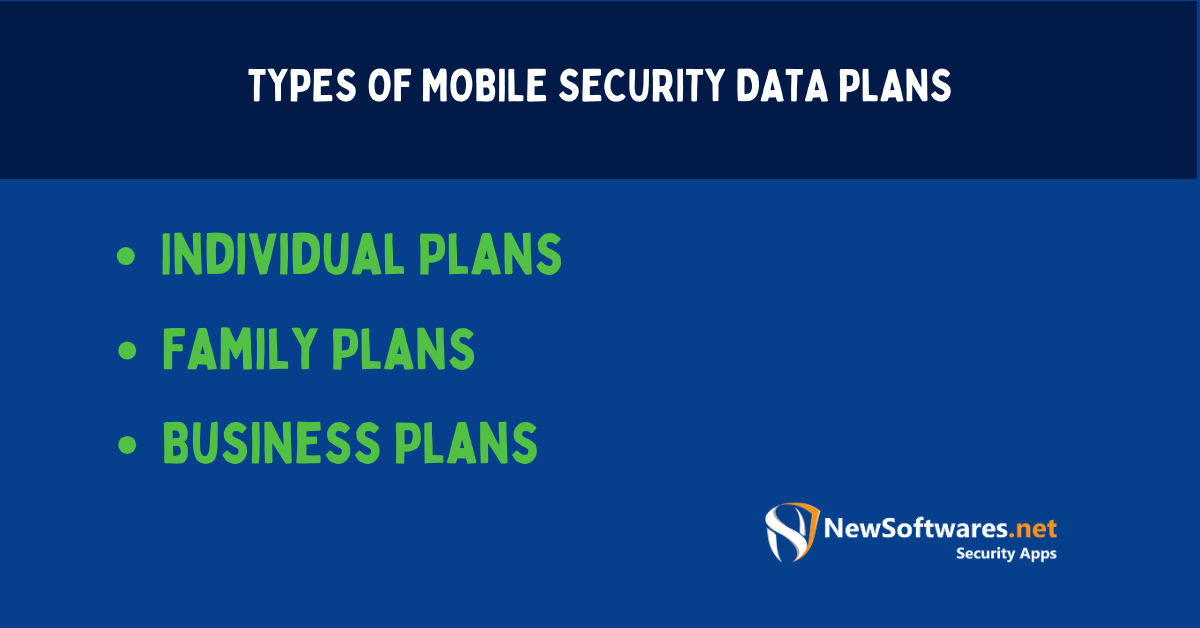A mobile security data plan refers to services or features offered by mobile carriers to provide additional layers of security for mobile data, like VPN access, malware protection, and secure browsing.
A mobile security data plan is crucial to mobile device usage in today’s digital world. Understanding the intricacies and importance of these plans can help individuals and businesses safeguard their sensitive information effectively. I will deliver an inclusive overview of mobile security data plans, including their basics, key features, types, and the process of choosing and implementing the right plan.
Understanding Mobile Security Data Plans

Before delving into the specifics, it’s essential to grasp the fundamentals of mobile security. In this increasingly interconnected landscape, mobile security protects mobile devices, data, and applications from unauthorized access, malware, viruses, and other digital threats. A mobile security data plan extends this protection to include the secure transmission and storage of data.
The Basics of Mobile Security
At the core, mobile security encompasses various measures that enable the safe usage of smartphones, tablets, and other mobile devices. It includes securing the operating system, defending against malware, and implementing access controls to ensure that only authorized individuals can access the device and its sensitive data.
Furthermore, mobile security entails encryption, which encodes data so only authorized parties can decipher it. This protects sensitive information, such as passwords, financial details, and personal identification, from falling into the wrong hands.
Mobile security also involves regular software updates to patch vulnerabilities and protect against emerging threats. These updates often include security enhancements and bug fixes to ensure the device remains resilient against evolving cyber threats.
In addition to securing the device, mobile security extends to the network connections used by mobile devices. This includes protecting against man-in-the-middle attacks, where an attacker intercepts and alters communication between a device and a server. Secure protocols like HTTPS encrypt data during transmission, preventing unauthorized interception and tampering.
Key Features of a Security Data Plan
A security data plan enhances mobile security by offering additional protective measures alongside standard data offerings. Some key features typically found in these plans include:
- Virtual Private Network (VPN) services that establish secure connections when accessing the internet.
A VPN makes a secure and encrypted tunnel between a mobile device and the internet, ensuring that data transmitted between the device and online services remains private and protected. This is important when using public Wi-Fi networks, which are often vulnerable to eavesdropping and data interception.
- Anti-malware software that scans and blocks potential threats on mobile devices.
Anti-malware software is planned to detect and remove malicious software from mobile devices, such as viruses, spyware, and adware. It monitors the device for suspicious activity and provides real-time protection against emerging threats.
- Device tracking and remote wiping options to locate and erase data from a lost or stolen device.
In the unlucky event that a mobile device is lost or stolen, security data plans often include features that allow users to track the device’s location and remotely erase its data. This helps protect sensitive info from falling into the wrong hands and provides peace of mind to users.
- Secure cloud storage to efficiently store and back up sensitive data.
Many security data plans offer secure cloud storage options, allowing users to store and back up their sensitive data in an encrypted and protected environment. This ensures that even if a device is lost or damaged, the data can be easily recovered and accessed from another device.
- Multi-factor authentication for additional layers of security when accessing accounts or applications.
Multi-factor authentication adds an extra layer of security by necessitating users to provide multiple verification forms, such as a password and a unique code sent to their mobile device, when accessing accounts or applications. This helps prevent illegal access even if a password is compromised.
Importance of Mobile Security Data Plans
With mobile devices becoming integral to our personal and professional lives, the importance of mobile security data plans cannot be overstated. Let’s explore two vital aspects that emphasize the significance of these plans.
Protecting Personal Information

In an era of increasing data breaches, protecting personal information is paramount. Mobile security data plans offer robust defenses against identity theft, unauthorized access to personal accounts, and the potential misuse of sensitive data. Individuals can safeguard their personal information by implementing security measures like encryption, anti-malware software, and VPNs.
Moreover, mobile security data plans allow users to wipe their devices in case of loss or theft remotely. This feature ensures that personal information remains secure even if the device falls into the wrong hands. Additionally, these plans often include features such as biometric authentication, further enhancing personal data protection.
Furthermore, mobile security data plans offer real-time monitoring and alerts for suspicious activities. This proactive approach allows individuals to take immediate action in case of potential security threats, minimizing the risk of data breaches and unauthorized access.
Safeguarding Business Data
For organizations of all sizes, safeguarding business data is a critical priority. Mobile security data plans are pivotal in securing vital business information, client data, financial records, and trade secrets. With rising corporate espionage and cyber attacks, businesses cannot afford to overlook the importance of comprehensive mobile security.
Mobile security data plans give businesses centralized control over their mobile devices, ensuring consistent security policies across all devices. This centralized management allows IT departments to enforce strong security measures, such as password policies, device encryption, and remote data wiping, to protect sensitive business data.
Moreover, mobile security data plans often include advanced threat detection and prevention mechanisms. These systems continuously monitor network traffic, detect suspicious activities, and block potential threats in real time. By leveraging these advanced security features, businesses can significantly decrease the risk of data breaches and unauthorized access to their valuable assets.
Additionally, mobile security data plans offer secure mobile app management, allowing organizations to control the installation and usage of apps on company devices. This feature safeguards that only trusted and authorized applications are installed, minimizing the risk of malware and other security vulnerabilities.
In conclusion, mobile security data plans are essential for individuals and businesses. By protecting personal information and safeguarding business data, these plans provide a comprehensive security framework that mitigates the risks associated with mobile devices. Investing in mobile security data plans is a wise decision and a necessary step in today’s digital landscape.
Types of Mobile Security Data Plans

Mobile security data plans come in various forms, catering to the diverse needs of individuals, families, and businesses. Here are three common types:
Individual Plans
Individual plans offer mobile security features tailored to meet the needs of single users. These plans typically include anti-malware software, VPN services, and secure cloud storage for personal data backup. They provide an effective solution for individuals seeking to safeguard their personal information and ensure a secure mobile experience.
Family Plans
Family plans extend mobile security benefits to multiple users within a household. In addition to the features found in individual plans, family plans often allow for device tracking and control, enabling parents to monitor and manage their children’s mobile activities. These plans offer peace of mind and ensure all family members enjoy a secure digital environment.
Business Plans
Business plans cater specifically to the needs of organizations. These comprehensive plans include advanced security features like secure email services, identity and access management, and mobile device management tools. Business plans are designed to safeguard critical business information and maintain compliance with industry regulations.
Choosing the Right Mobile Security Data Plan
Selecting the most suitable mobile security data plan requires careful consideration of individual or business requirements. The following steps can assist in making an informed decision:
Assessing Your Security Needs
Begin by evaluating the level of mobile security needed. Determine the sensitivity of the data being accessed or transmitted, the number of devices to be protected, and the potential dangers involved. This assessment will help prioritize the features that should be included in the chosen plan.
Comparing Different Plan Options
Research and compare the mobile security data plans offered by multiple providers. Consider factors like pricing, features, reliability, and customer reviews. Look for plans that align with the identified security needs while offering value for the investment.
Implementing Your Mobile Security Data Plan
Once the right mobile security data plan has been chosen, the implementation process is essential for effectively protecting devices and data. The following steps should be followed:
Setting Up Your Plan
Follow the provider’s instructions for the chosen mobile security data plan. This typically involves software installation and configuration steps. Ensure that all devices are protected and that features like VPN connections and anti-malware software are properly activated.
Regular Maintenance and Updates
Maintaining mobile security requires regular updates and patches to address emerging threats. Ensure that the chosen plan provides timely software updates and stay vigilant about implementing them. Additionally, periodically review and reassess the plan’s effectiveness as security needs may evolve.
Key Takeaways
- Protects against common cyber threats on mobile devices.
- May offer encrypted communications.
- Protects against malicious apps and websites.
- It can offer real-time threat monitoring.
- Usually, it comes at an additional cost.
FAQs
Is it worth investing in a mobile security data plan?
If you frequently handle sensitive data on your mobile device, it’s a worthwhile investment.
Do all carriers offer these plans?
Not necessarily. Check with your provider for available security features.
Can I use third-party security apps instead?
Yes, but ensure they are from reputable developers and compatible with your device.
Does this plan protect against physical theft?
Not typically, but some plans might offer features like remote device locking or tracking.
Can I combine this with other security measures?
Layering security measures is often the most effective approach.
Conclusion
By understanding the importance and nuances of mobile security data plans, individuals and businesses can make informed decisions that protect their sensitive information. Whether safeguarding personal accounts or defending critical business data, the right plan can significantly enhance mobile security and provide peace of mind in an increasingly interconnected world.
